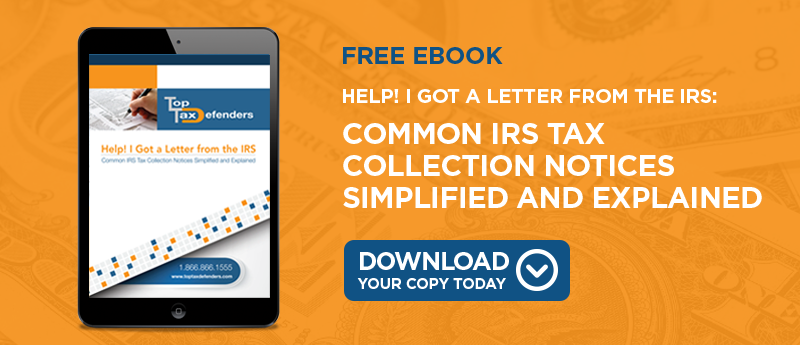
Property taxes are a significant portion of the cost of owning real estate, usually one percent to three percent of the home’s value to be paid annually. Since property taxes are permanent, anything that can reduce your tax liability will probably perk your ears right up. So, get your ears ready to perk, because the tax reduction term for today is tax abatement.
You may have heard about tax abatements on the news about your local government or during real estate seminars. If you aren’t familiar with them, then this is the post for you.
You will learn what a tax abatement is and how it works. It discusses why tax abatements are offered and how much you might expect taxes to be reduced. Then it helps you determine if you (or rather the property you are purchasing or already own) are eligible for a tax abatement.
What Is a Tax Abatement and How Does It Work?
A tax abatement is a temporary reduction of property taxes. In rare cases, an abatement may even eliminate property tax. However, notice that it is a temporary reduction, meaning that the abatement doesn’t last forever.
Tax abatements are most commonly associated with real property but can apply to personal property as well. One crucial element to remember about tax abatements is that they are defined differently between locations — from county to county, state to state, or even within a municipality.
Tax abatements may apply only to specific property types, such as new homes or homes in particular neighborhoods. The amount of the abatement is determined by the governing tax agency. And while the term temporary is used in the definition, temporary can mean anything from a year to decades.
Why Are Tax Abatements Offered?
Tax abatements are incentives.
- Tax abatements on new construction encourage building new homes or commercial buildings.
- Tax abatements for specific neighborhoods are commonly used to get people to help with urban renewal.
- Tax abatements for renovations can help those who purchase and refurbish older or historic homes.
Tax abatements have several functions. They reduce the cost of living in the location where they are active. They can stimulate the local economy by supporting new construction and renovation. Tax abatements can even help property values increase. In some instances, a tax abatement might make it possible for someone to purchase a home by providing a lower monthly payment.
The green building movement often uses tax abatements to encourage building energy-efficient structures.
How Much Will a Tax Abatement Save You?
Every tax abatement regulation is different because it depends on the goal of that abatement. The abatement also depends on other factors, including local property tax rates, how long the abatement is in force, and how much tax benefit a property can have.
In most cases, a tax abatement will help you save substantially on your taxes. A few may eliminate the taxes on a property. However, the amount is set by the tax regulating agency. One example is a city-supported abatement for new homes. The abatement is set to cover up to $300,000 in market value. A house that is worth more than that is not eligible for the abatement.
Other examples from real-life include:
- The City of Philadelphia, PA - new construction and renovated housing are eligible for a 10-year, 100% tax abatement on the value of improvements.
- The City of Des Moines, IA - the type of improvement and property location determine the abatement eligibility for a 10-year, 115% abatement for property valued up to $23,000.
- The State of California - the abatement provides a tax incentive to restore and preserve historic homes. Tax saving might be 40% to 60%.
- The City of St. Louis, MO - Property tax is frozen at the property's value before improvements for new construction on vacant land or a total gutting and renovation of an existing building.
The length, amount, percentage, and location are all controlled by the tax abatement program. Abatements are sometimes given automatically, whereas other places make you file for them.
Are You Eligible for a Tax Abatement?
As it happens, you are not under consideration for the tax abatement, the property is. Since everything is set according to the property value, location, and type of construction or renovation, the tax abatement is available to whoever purchases it.
In some cases, your annual income may impact eligibility for an abatement; it all depends on the requirements.
As long as the requirements are met, you should get the tax abatement if you own the property. Also, tax abatements follow the property, so if you sell it and there are still three years left on the abatement, the new owner gets the advantage of the abatement for those. The time does not reset when a property is sold.
Caution
Tax Abatements Don’t Control the Total Amount of Tax You Pay
A tax abatement doesn’t control the actual amount of tax you owe for the year. Taxes can go up, property values can increase, and other factors may change to cause your tax liability to go up or down. Unless your property is eligible for a 100% tax abatement, your taxes might still vary from year to year.
Tax Abatements Aren’t Forever
Most tax abatements end at some point. After that, you are responsible for the full amount of tax. Be sure to factor that into your budget before it happens. You don’t want to be surprised when your monthly payment or annual tax debt goes up.
Tax Abatement Requirements Can Change
In the State of Texas, a new abatement legislation notice came out explaining a newly enacted bill. On September 1, 2019, changes were made to the public notice, hearing, and reporting requirements for certain tax abatement agreements.
The new state law applies to all city and county public notices. It sets the amount of public notice required before a hearing, the information the public notice must contain, and who should be heard. Bringing in current technology and communication methods, the law includes requirements for placing the guidelines and criteria on a website run by the taxing unit or location.
Tax Abatements May Be Available Only in Neighborhoods Where You Don’t Want to Live
Many cities use tax abatements to encourage renewal; therefore, the abatements are made available for less appealing neighborhoods. Or the abatements may be used to promote homeownership and are available only for low to middle-class people and properties up to a particular value.
Tax abatements are but one consideration when buying a property. Because of its transitory nature, it shouldn’t be your top priority. Look at overall tax rates, schools, and other essential items. Use the availability of a tax abatement as a tiebreaker between two properties if all else is the same.
If you have more questions about tax abatements or other tax issues, contact Top Tax Defenders. We are here to help.




